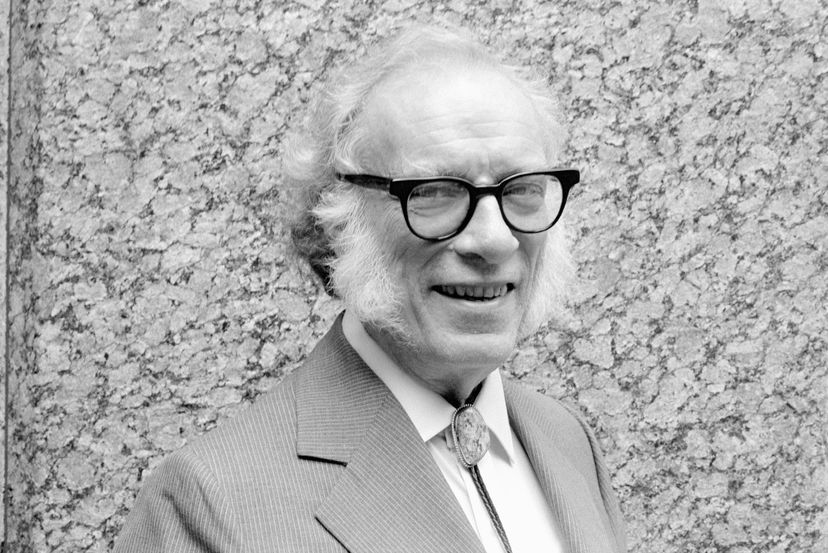
About This Quiz
Isaac Asimov was a fantastically prolific writer who shaped many ideas about technology and morality. How much do you know about him? Take this quiz to find out.He was right; many of our robot technologies have developed more slowly than some people anticipated.
The word appeared in his story "Liar!" and may have led to the popularization of the term.
"Pebble in the Sky" was published in 1950, and its plot includes time travel and explorations of human morality.
Advertisement
The candy shop carried all sorts of periodicals and science fiction magazines, which greatly influenced the young boy's growing mind.
He was born in Petrovichi, Russia, and moved to the U.S. with his family when he was 3 years old.
Asimov attended New York City's public school system and then entered the Seth Low Junior College.
Advertisement
Published in 1950, this collection of nine short stories was only his second book.
In addition to the 500 books he helped to create, by some accounts he wrote 90,000 letters, a testament to his constant desire to communicate his ideas.
He received an honorable discharge after less than a year of service in the Army.
Advertisement
He called boredom a threat to humanity and said that psychologists would be in great demand.
The 1941 short story explores a sunlight-saturated civilization that's suddenly enveloped by darkness.
He flew only twice, a fact that affected his ability to travel the world.
Advertisement
He said that peaceful cooperation would be much more productive than warring and competition.
He spent much of his life in academic settings but used more of his time for writing than teaching.
The author introduced the "Three Laws of Robotics" in a 1942 short story called "Runaround."
Advertisement
His work ethic, discipline and long days are what helped him complete so many projects during the course of his life.
Asimov was friendly and warm to most people he met and would spend time chatting with strangers.
He was friends with Gene Roddenberry, the creator of the "Star Trek" franchise.
Advertisement
Asimov invented the term "positronic brain" when he wrote of robots that had computer-chip brains.
The actual law as written by Asimov reads: "A robot must obey the orders given it by human beings except where such orders would conflict with the First Law."
He also said that these hovering vehicles would reduce the need for widespread paving and road construction.
Advertisement
American fears of Soviet space superiority pushed U.S. publishers to create as much science content as they could, encouraging Asimov to move from fiction to nonfiction.
Asimov created an initial script for McCartney and his band Wings, but creative differences meant that the project never came to fruition.
He was an atheist and more than happy to share his views on morality and spirituality.
Advertisement
In "Asimov's Guide to the Bible," the writer explored many characters and background stories underpinning the Bible's verses.
He wrote the Lucky Starr series of books for young people using the name Paul French.
Bradbury, who was working as an editor at Doubleday, liked Asimov's story, which was published in 1955.
Advertisement
He had so many ideas that he'd just type faster, leaving behind a few more thoughts on the universe.
He was keenly concerned about overpopulation and how it would affect civilizations around the world.
He said that only incompetent people had to resort to bloodshed and violence.
Advertisement